
Bristol: A history and Guide
College Green (2)
Opposite the Cathedral, on the other side of the Green, lies the huge sweeping bulk of the Council House. This is the city's administrative building. Some people say it is ugly but I think it's very impressive.
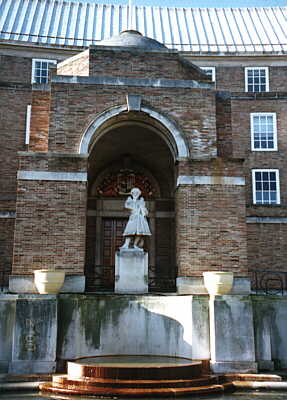
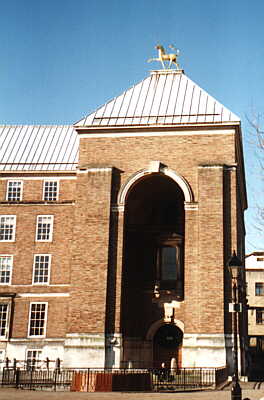
The photos above show the central arch and one of the two end towers
The Council House ~ College Green
The Council House was only partially finished at the outbreak of WWII in 1939 and it wasn't until the war was over in 1945 that it was finished and the Council moved in.
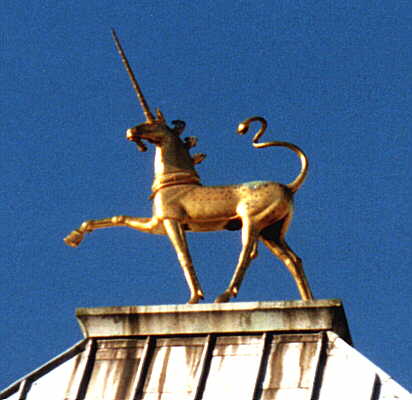
A Bristol Unicorn
The coat of arms of Bristol is made up of a shield showing a ship protected by a castle, surrounded by a pair of unicorns. Both of the two end towers of the Council House bear a golden unicorn. The photograph above shows one of them.
On the East side of the Green can be found St Mark's, The Lord Mayors Chapel.
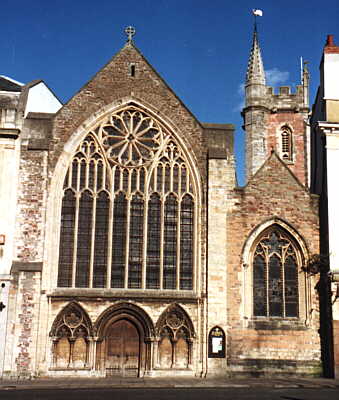
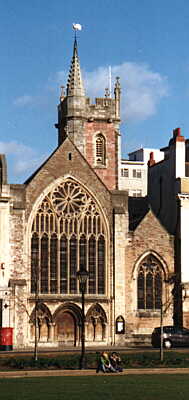
Two views of the Lord Mayor's Chapel
The building was originally founded in 1220 by Maurice and Henry de Gaunt. Both of these men were grandsons of Robert Fitzhardinge, who had built the Abbey of the Black Canons of St. Augustine, where the Cathedral now stands in 1140. The tower is a later addition, being erected in 1487. The building was originally built as a hospital for tending the sick, feeding the poor and educating the children. The nephew of the de Gaunts, Robert de Gournay also had a hand in its endowment. The staff, at it's height consisted of a Master, three chaplains and 27 poor brethren.
Nearby Orchard and Culver Streets are named after parts of the building - a Culver was a pigeon house. The chapel is all that is left of a much larger building, but is unique in that it is the exclusive property of the City. The cost of the clergy and repairs is maintained out of endowments made to it. The Council purchased the building for £1,000 during the dissolution of the monasteries in 1539.
In 1687, and for around 40 years after it was used by French Huguenot refugees who had settled in Bristol. In 1722 there was a dispute between the Council and the Cathedral authorities over the pews in the Cathedral. The Council decided not to use the Cathedral any more and since then have used St Mark's as their place of worship.
From College Green there is a magnificent view up Park Street to the University's Will's Memorial building.
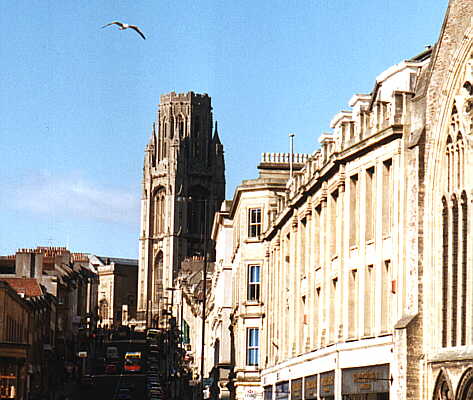
Will's Memorial Building from College Green
Near College Green and the Cathedral stands a marble statue of Queen Victoria, by Joseph Edgar Boehm. It was unveiled by her grandson, Prince Albert Victor, Duke of Clarence on 25th July 1888, to commemorate her Golden Jubilee of the previous year. £2,500 was raised by public subscription to pay for it. It is 8 ft 6 ins high and weighs 4 tons. The original sceptre and orb the statue holds are now broken. During redevelpment of the site in 2004, a sealed glass jar "time capsule" was found under the bronze plinth of the statue which was given to Bristol Museum.
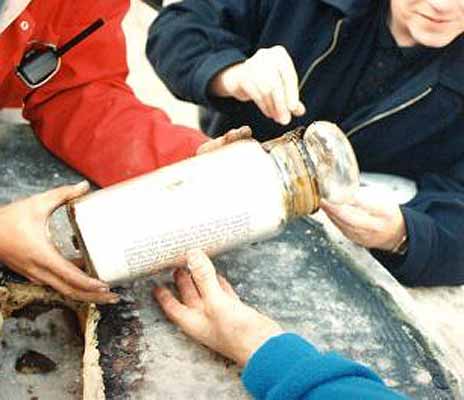
Time Capsule found when Eura Conservation Ltd. moved Queen Victoria's statue
This page created 25th February 2000, last modified 13th September 2009